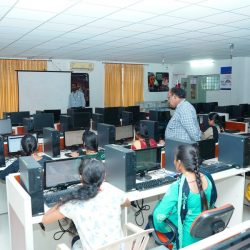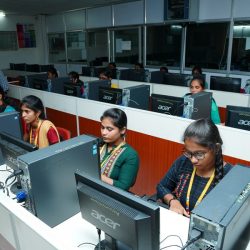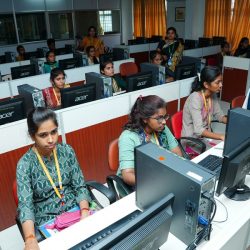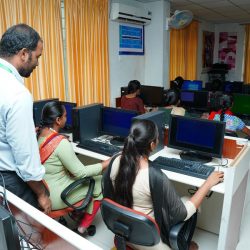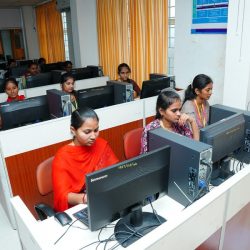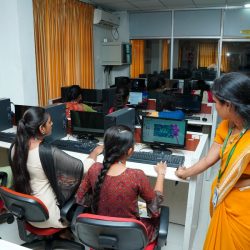The department of Computer Science and Engineering (CSE) was established in the year 2008 with an intake of 60 in B.Tech. Over the years, the department has shown consistent growth and the current intake in B.Tech CSE is 240. The department also offers M.Tech in Computer Science and Engineering programme with an intake of 18 since 2011.
Department has committed, well-qualified, professionally active faculty members with good research strengths. The majority of the faculty members are pursuing Ph.D. in emerging areas like Artificial Intelligence, Machine Learning, Data Mining, Cyber Security, IOT, Data Science, and Block Chain, etc. The department is well-equipped with state-of-the-art laboratories.
The Department of Computer Science and Engineering meticulously strives to develop analytical & synthesizing skills, thus fostering the overall development of students. Department conducts the guest lectures and workshops by eminent subject experts from the IITs, reputed foreign Universities, and the proficient personalities from the corporate world. For the multi-dimensional growth of the students, various activities are also conducted in collaboration with professional bodies like CSI, ISTE, and IEEE. Faculty and students are encouraged to do certifications offered by Microsoft, NPTEL-SWAYAM, LinkedIn, etc, to move the needle on upgrading their proficiency and skill set in the interested areas.
Every year the department is showing outperforming placement track record. The department has vibrant alumni working in top-notch giants in the software industry like TCS, Wipro, CTS, HP, Accenture, Infosys, Amazon, Flipkart, etc.
Vision
To achieve excellence in the stream of computer science engineering through technically competence, teaching-learning process and facilitate placements to students with social responsibility.
Mission
B.Tech. in CSE
M.Tech. in CSE
PROGRAMME EDUCATIONAL OBJECTIVES (PEO)
After the completion of the Program, the graduates of B. Tech. (CSE) will
PROGRAM OUTCOMES (PO)
On successful completion of the Program, the graduates of B. Tech. (CSE) Program will be able to:
PROGRAM SPECIFIC OUTCOMES (PSO)
On successful completion of the B. Tech. (CSE) Program, the graduates will be able to
M.Tech (CSE)
Programme Educational Objectives:
Programme Outcomes:
Programme Specific Outcomes:
Department Event Calendars
Labs
Academic Regulations and Syllabus
Academic Regulations and Syllabus
Lecture Notes (Video)
Dr. N. Deepak Kumar CSE Dept. all programming subjects Video Lectures





